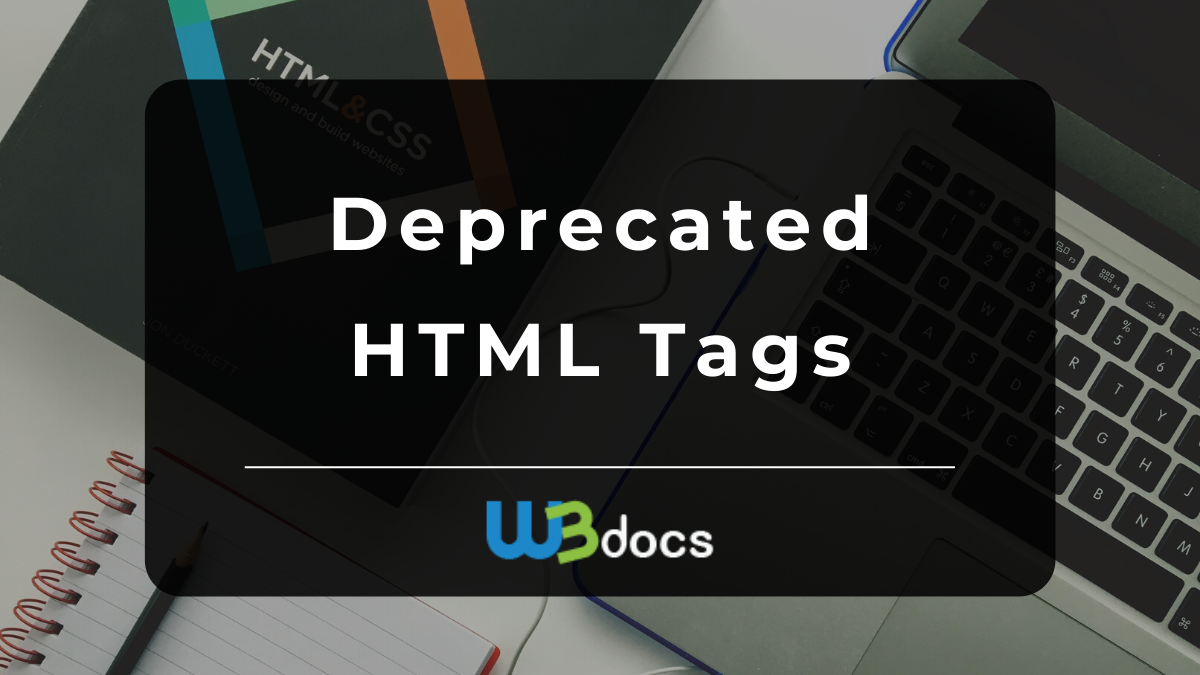No JS, No CSS, No HTML: online "clubs" celebrate plainer websites
-
I do wonder if we're going to see some websites popping up that kind of hit the reset button on social media and go back to smaller communities of folks with something in common.
I kind of miss the days of actually having online conversations with folks you know are real people (not bots), that aren't trying to be an influencer, or get famous, or some how many money off your interactions.
Is there any way to go back to running these things on an old Dell in the corner of a bedroom next to a fire extinguisher?
That's when we have truly won
-
I think it'll happen, but I don't think it's happening yet.
The unease is already there ("the internet used to be a place"/"why isn't the internet fun any more?" sentiments and #OldWeb #SlowWeb hashtags), but I don't think people are ready to do anything about it.
I'm only one guy, with a small internet following, but I recently had a go at launching a small "Gaymers" webring (well, a simplified version of one). I promoted it on my socials, I laid out why I think it's a good idea, I paid to "Blaze" it on Tumblr – I even emailed some like-minded creators directly.
I rewrote the webpage multiple times, to try to make it more persuasive and more concise. I added a contact form in case people felt uncomfortable emailing me. I loosened the rules to allow commercial websites, as long as they were still independent. I worked hard on the widget and incorporated feedback (made it respect
prefers-reduced-motionand made a static version for sites where animation would feel out of place).I got some good feedback; lots of people said it was interesting, and a good idea. But literally no one joined or expressed any interest in joining.

 ️
️I'm going to have one more go at promoting it next time I've got money to spare, but I'll most likely end up quietly deleting it along with any evidence it existed, because a webring of one is fucking embarrassing.

I guess if you build it, they will not necessarily come lmao
i love the idea of hosting sites as part of a ring, but i don’t love the idea of having to add my full name and address in the about section, which i’d be legally required to do… i think that’s part of the issue for some people at least.
-
I think it'll happen, but I don't think it's happening yet.
The unease is already there ("the internet used to be a place"/"why isn't the internet fun any more?" sentiments and #OldWeb #SlowWeb hashtags), but I don't think people are ready to do anything about it.
I'm only one guy, with a small internet following, but I recently had a go at launching a small "Gaymers" webring (well, a simplified version of one). I promoted it on my socials, I laid out why I think it's a good idea, I paid to "Blaze" it on Tumblr – I even emailed some like-minded creators directly.
I rewrote the webpage multiple times, to try to make it more persuasive and more concise. I added a contact form in case people felt uncomfortable emailing me. I loosened the rules to allow commercial websites, as long as they were still independent. I worked hard on the widget and incorporated feedback (made it respect
prefers-reduced-motionand made a static version for sites where animation would feel out of place).I got some good feedback; lots of people said it was interesting, and a good idea. But literally no one joined or expressed any interest in joining.

 ️
️I'm going to have one more go at promoting it next time I've got money to spare, but I'll most likely end up quietly deleting it along with any evidence it existed, because a webring of one is fucking embarrassing.

I guess if you build it, they will not necessarily come lmao
You may have more luck with neocities and their sites. Lots of webrings around there and a lot of people having fun.
-
we got static site generators tho
Plus markdown is kinda loosy goosy when it comes to the "standard". Sites like Github and wikipedia have slightly different specs. And each site has a different scheme to hook into it.
Its much easier to set up static site generators or hook into something that can translate. But maybe that will change.
I personally would like other languages in the browser. Native python the browser would be nice for example.
-
I love this.
I thought I was being "bare-bones" when I remade my website with PHP & XML (no framework or database).
What would they think about a python app that delivers plaintext or html? Is that still kosher for the no-js gang? Or does it have to be static files?Dunno. Give it a shot and see how it goes!
Personally I would just set nginx + translator that would push the site into different formats if I wanted it long term. Just dump the resultant files, set up a website.cool/xxx.txt and push it out there.
-
i love the idea of hosting sites as part of a ring, but i don’t love the idea of having to add my full name and address in the about section, which i’d be legally required to do… i think that’s part of the issue for some people at least.
Where are you seeing that? I only see email address.
-
The revived No JS Club celebrates websites that don't use Javascript, the powerful but sometimes overused code that's been bloating the web and crashing tabs since 1995. The No CSS Club goes a step further and forbids even a scrap of styling beyond the browser defaults. And there is even the No HTML Club, where you're not even allowed to use HTML. Plain text websites!
The modern web is the pure incarnation of evil. When Satan has a 1v1 with his manager, he confers with the modern web. If Satan is Sauron, then the modern web is Melkor [1]. Every horror that you can imagine is because of the modern web. Modern web is not an existential risk (X-risk), but is an astronomic suffering risk (S-risk) [2]. It is the duty of each and every man, woman, and child to revolt against it. If you're not working on returning civilization to ooga-booga, you're a bad person.
A compromise with the clubs is called for. A hypertext brutalism that uses the raw materials of the web to functional, honest ends while allowing web technologies to support clarity, legibility and accessibility. Compare this notion to the web brutalism of recent times, which started off in similar vein but soon became a self-subverting aesthetic: sites using 2.4MB frameworks to add text-shadow: 40px 40px 0px hotpink to 400kb Helvetica webfonts that were already on your computer.
I also like the idea of implementing "hypotext" as an inversion of hypertext. This would somehow avoid the failure modes of extending the structure of text by failing in other ways that are more fun. But I'm in two minds about whether that would be just a toy (e.g. references banished to metadata, i.e. footnotes are the hypertext) or something more conceptual that uses references to collapse the structure of text rather than extend it (e.g. links are includes and going near them spaghettifies your brain). The term is already in use in a structuralist sense, which is to say there are 2 million words of French I have to read first if I want to get away with any of this.
Republished Under Creative Commons Terms.
Boing Boing Original Article.no http club, who is joining?
-
Looks good on Lynx.
!links2@lemmy.sdf.org
-
Dunno. Give it a shot and see how it goes!
Personally I would just set nginx + translator that would push the site into different formats if I wanted it long term. Just dump the resultant files, set up a website.cool/xxx.txt and push it out there.
I see they have a SFW requirement. And while my site is currently SFW, I won't guarantee that it will remain so.
Still, it's at least making me consider cutting out all the zurb-foundation stuff, since that's the only JS I have, and the site is simple enough that it doesn't really need it.
-
The revived No JS Club celebrates websites that don't use Javascript, the powerful but sometimes overused code that's been bloating the web and crashing tabs since 1995. The No CSS Club goes a step further and forbids even a scrap of styling beyond the browser defaults. And there is even the No HTML Club, where you're not even allowed to use HTML. Plain text websites!
The modern web is the pure incarnation of evil. When Satan has a 1v1 with his manager, he confers with the modern web. If Satan is Sauron, then the modern web is Melkor [1]. Every horror that you can imagine is because of the modern web. Modern web is not an existential risk (X-risk), but is an astronomic suffering risk (S-risk) [2]. It is the duty of each and every man, woman, and child to revolt against it. If you're not working on returning civilization to ooga-booga, you're a bad person.
A compromise with the clubs is called for. A hypertext brutalism that uses the raw materials of the web to functional, honest ends while allowing web technologies to support clarity, legibility and accessibility. Compare this notion to the web brutalism of recent times, which started off in similar vein but soon became a self-subverting aesthetic: sites using 2.4MB frameworks to add text-shadow: 40px 40px 0px hotpink to 400kb Helvetica webfonts that were already on your computer.
I also like the idea of implementing "hypotext" as an inversion of hypertext. This would somehow avoid the failure modes of extending the structure of text by failing in other ways that are more fun. But I'm in two minds about whether that would be just a toy (e.g. references banished to metadata, i.e. footnotes are the hypertext) or something more conceptual that uses references to collapse the structure of text rather than extend it (e.g. links are includes and going near them spaghettifies your brain). The term is already in use in a structuralist sense, which is to say there are 2 million words of French I have to read first if I want to get away with any of this.
Republished Under Creative Commons Terms.
Boing Boing Original Article.Gemini capsule
-
The revived No JS Club celebrates websites that don't use Javascript, the powerful but sometimes overused code that's been bloating the web and crashing tabs since 1995. The No CSS Club goes a step further and forbids even a scrap of styling beyond the browser defaults. And there is even the No HTML Club, where you're not even allowed to use HTML. Plain text websites!
The modern web is the pure incarnation of evil. When Satan has a 1v1 with his manager, he confers with the modern web. If Satan is Sauron, then the modern web is Melkor [1]. Every horror that you can imagine is because of the modern web. Modern web is not an existential risk (X-risk), but is an astronomic suffering risk (S-risk) [2]. It is the duty of each and every man, woman, and child to revolt against it. If you're not working on returning civilization to ooga-booga, you're a bad person.
A compromise with the clubs is called for. A hypertext brutalism that uses the raw materials of the web to functional, honest ends while allowing web technologies to support clarity, legibility and accessibility. Compare this notion to the web brutalism of recent times, which started off in similar vein but soon became a self-subverting aesthetic: sites using 2.4MB frameworks to add text-shadow: 40px 40px 0px hotpink to 400kb Helvetica webfonts that were already on your computer.
I also like the idea of implementing "hypotext" as an inversion of hypertext. This would somehow avoid the failure modes of extending the structure of text by failing in other ways that are more fun. But I'm in two minds about whether that would be just a toy (e.g. references banished to metadata, i.e. footnotes are the hypertext) or something more conceptual that uses references to collapse the structure of text rather than extend it (e.g. links are includes and going near them spaghettifies your brain). The term is already in use in a structuralist sense, which is to say there are 2 million words of French I have to read first if I want to get away with any of this.
Republished Under Creative Commons Terms.
Boing Boing Original Article.Gemini protocol is fab btw. Come join the tildeverse
-
CSS on the other hand is quite essential to separate layout from content. Which is a good thing, so I can't really think of a reason for a "no-CSS" rule. Specifically if you can use inline styles as well but in a way more messy way.
CSS is useful but also the devil.
-
The revived No JS Club celebrates websites that don't use Javascript, the powerful but sometimes overused code that's been bloating the web and crashing tabs since 1995. The No CSS Club goes a step further and forbids even a scrap of styling beyond the browser defaults. And there is even the No HTML Club, where you're not even allowed to use HTML. Plain text websites!
The modern web is the pure incarnation of evil. When Satan has a 1v1 with his manager, he confers with the modern web. If Satan is Sauron, then the modern web is Melkor [1]. Every horror that you can imagine is because of the modern web. Modern web is not an existential risk (X-risk), but is an astronomic suffering risk (S-risk) [2]. It is the duty of each and every man, woman, and child to revolt against it. If you're not working on returning civilization to ooga-booga, you're a bad person.
A compromise with the clubs is called for. A hypertext brutalism that uses the raw materials of the web to functional, honest ends while allowing web technologies to support clarity, legibility and accessibility. Compare this notion to the web brutalism of recent times, which started off in similar vein but soon became a self-subverting aesthetic: sites using 2.4MB frameworks to add text-shadow: 40px 40px 0px hotpink to 400kb Helvetica webfonts that were already on your computer.
I also like the idea of implementing "hypotext" as an inversion of hypertext. This would somehow avoid the failure modes of extending the structure of text by failing in other ways that are more fun. But I'm in two minds about whether that would be just a toy (e.g. references banished to metadata, i.e. footnotes are the hypertext) or something more conceptual that uses references to collapse the structure of text rather than extend it (e.g. links are includes and going near them spaghettifies your brain). The term is already in use in a structuralist sense, which is to say there are 2 million words of French I have to read first if I want to get away with any of this.
Republished Under Creative Commons Terms.
Boing Boing Original Article.I always loved text stuff. The old rogue games were awesome.
-
CSS is useful but also the devil.
CSS is mostly evil when you have to center elements in the page.
-
CSS is mostly evil when you have to center elements in the page.
text-align: center
or
margin: auto
or
grid
or
flexbox
It's really not that hard now.
-
Frames still break on some sites. center is still being joked about. Once in a while you still see plaintext on some very old sites.
And as a dev of over 20 years, I can say for a fact that deprecations will occur. And its all code cruft for modern browsers to navigate. Its easier to let them die. And in 10+ years the txt docs will still work. Mostly. Maybe.
 Unicode emojis make it even more confusing to the conversion.
Unicode emojis make it even more confusing to the conversion.
Deprecated HTML Tags
Deprecated elements are the ones that are allowed, but not recommended and are being replaced by newer ones. See deprecated HTML tag list with their alternates.
(www.w3docs.com)
If they are useful, people will still use them. We can have both. Modern Browsers that are closer to full scale OSes AND tiny little txt sites that give users info on the given topic.
even if the website uses deprecated elements, it wont really break. modern browsers will still have compatibility with the old ass tags
-
even if the website uses deprecated elements, it wont really break. modern browsers will still have compatibility with the old ass tags
blink and center dont work on most modern sites. iframes in particular break now. Give it another 10 years. Hell React will break if you dont keep up with the updates every 6ish months. Or so it feels.
We can have both. Sites that marvel and little txt sites.
-
Is there any way to go back to running these things on an old Dell in the corner of a bedroom next to a fire extinguisher?
That's when we have truly won
There is indeed
-
Anyone using basic HTML elements from the first HTML spec would still be supported in 99+% of cases today. HTML has added lots, and removed very, very, very little.
Blink tag! Blink tag! Blink tag!
-
The revived No JS Club celebrates websites that don't use Javascript, the powerful but sometimes overused code that's been bloating the web and crashing tabs since 1995. The No CSS Club goes a step further and forbids even a scrap of styling beyond the browser defaults. And there is even the No HTML Club, where you're not even allowed to use HTML. Plain text websites!
The modern web is the pure incarnation of evil. When Satan has a 1v1 with his manager, he confers with the modern web. If Satan is Sauron, then the modern web is Melkor [1]. Every horror that you can imagine is because of the modern web. Modern web is not an existential risk (X-risk), but is an astronomic suffering risk (S-risk) [2]. It is the duty of each and every man, woman, and child to revolt against it. If you're not working on returning civilization to ooga-booga, you're a bad person.
A compromise with the clubs is called for. A hypertext brutalism that uses the raw materials of the web to functional, honest ends while allowing web technologies to support clarity, legibility and accessibility. Compare this notion to the web brutalism of recent times, which started off in similar vein but soon became a self-subverting aesthetic: sites using 2.4MB frameworks to add text-shadow: 40px 40px 0px hotpink to 400kb Helvetica webfonts that were already on your computer.
I also like the idea of implementing "hypotext" as an inversion of hypertext. This would somehow avoid the failure modes of extending the structure of text by failing in other ways that are more fun. But I'm in two minds about whether that would be just a toy (e.g. references banished to metadata, i.e. footnotes are the hypertext) or something more conceptual that uses references to collapse the structure of text rather than extend it (e.g. links are includes and going near them spaghettifies your brain). The term is already in use in a structuralist sense, which is to say there are 2 million words of French I have to read first if I want to get away with any of this.
Republished Under Creative Commons Terms.
Boing Boing Original Article.BBSes are back!
-
-
-
-
Telegram, the FSB, and the Man in the Middle: The technical infrastructure that underpins Telegram is controlled by a man whose companies have collaborated with Russian intelligence services.
Technology 1
1
-
-
Discord unveils Discord Orbs, a new in-app currency that users can earn by completing Quests, which reward participants who interact with ads
Technology 1
1
-
-
Tesla confirms it has given up on its Cybertruck range extender to achieve promised range
Technology 1
1




